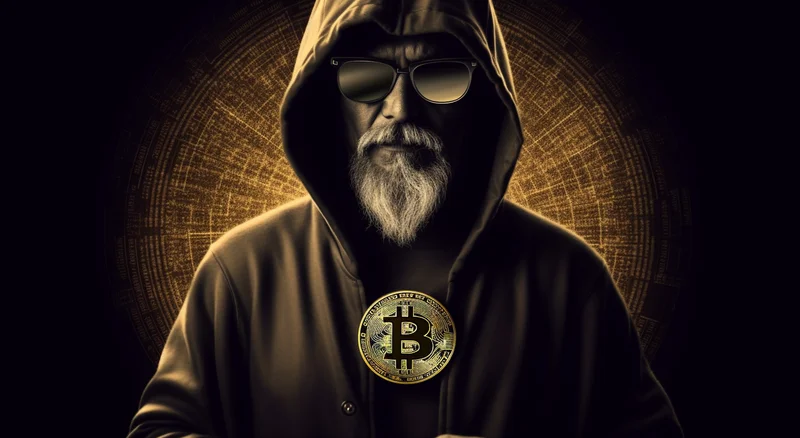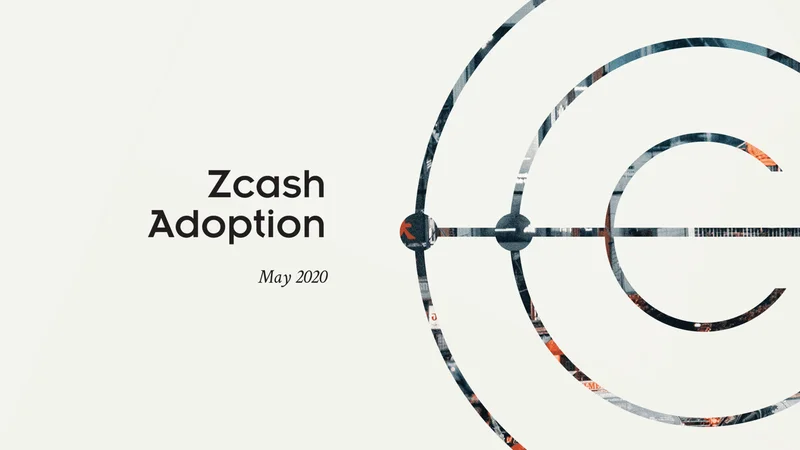Satoshi Nakamoto: The Enduring Mystery
Alright, buckle up, folks, because something huge is happening in the world of crypto, and it’s not what you might think at first glance. We're witnessing Bitcoin's "Revolution in Transition," and I'm here to tell you why Wall Street's sudden bear hug might just be the unlikely lifeline crypto needs!
For years, Bitcoin was the rebel, the scrappy underdog fighting against the established order of traditional finance. It was all about decentralization, self-custody, and sticking it to the man, right? Now, suddenly, we see headlines like "Satoshi, We Have A Problem: At 17 Years Old, Banks Love Bitcoin," and it's easy to feel like the revolution has been co-opted, that the very institutions Bitcoin was designed to disrupt are now calling the shots. JPMorgan, JPMorgan!, is accepting Bitcoin as collateral. BlackRock, the behemoth of investment, is launching Bitcoin ETFs. It feels like a betrayal, doesn't it?
But hold on a second. What if this isn't the end of the revolution, but a crucial phase of it? What if Wall Street's embrace, while seemingly contradictory, is actually the key to unlocking Bitcoin's true potential and bringing its promise of financial freedom to the masses?
From Outlaw to Institution: A Necessary Evolution?
Think about it this way: every major technological shift in history has followed a similar pattern. First, there's the initial spark of innovation, the disruptive idea that challenges the status quo. Then comes the resistance, the pushback from established players who feel threatened by the new technology. And finally, there's the integration, the moment when the new technology is absorbed into the mainstream and begins to reshape society from within.
The article I read pointed out that this year’s Nobel Prize in Economics was awarded to Joel Mokyr, Philippe Aghion, and Peter Howitt for their work on creative destruction. It's all about how innovation advances by continually replacing the old with the new – disruptive in the short run, but essential for long-term progress. Bitcoin's story fits this pattern perfectly!
Remember the internet in the early days? It was a wild west of hackers, activists, and digital outlaws. Now, it's the backbone of our global economy, and while some of the initial idealism may have been lost along the way, the internet has undeniably transformed our lives for the better.
Bitcoin's journey is similar. It started as a cypherpunk dream, a vision of a world free from government control and financial censorship. But to truly achieve that vision, Bitcoin needs to reach a critical mass of users, and that's where Wall Street comes in.
The fact is, most people are still intimidated by crypto. They don't understand the technology, they're worried about scams, and they simply don't have the time or expertise to manage their own private keys. Wall Street, with its regulated funds and familiar investment products, can bridge that gap, making Bitcoin accessible to a wider audience than ever before.
Now, I know what you're thinking: "But Aris, isn't that exactly what Satoshi was trying to avoid?" And you're right, to a point. Satoshi's vision was about individual sovereignty, about putting people in control of their own finances. But what if Wall Street's involvement can actually empower individuals in the long run?

Imagine a world where Bitcoin is seamlessly integrated into our everyday financial lives, where anyone can easily invest in crypto, send and receive payments, and participate in the decentralized economy. That's the promise of Bitcoin, and Wall Street's embrace, while imperfect, could be the catalyst that makes it a reality.
This isn't to say that we should blindly trust Wall Street, of course. We need to be vigilant about protecting Bitcoin's core principles of decentralization and self-custody. We need to ensure that the institutions don't become too powerful, that they don't stifle innovation or censor transactions. It’s a delicate balance, for sure.
But I think it’s crucial to remember that this is about more than just technology. It's about culture, about changing the way we think about money and finance. The article highlights events like the Plan ₿ Forum in Lugano, Switzerland, where people are talking about extending Bitcoin's principles beyond financial markets to the way societies govern themselves. It's about building a world where transparency, openness, and individual choice are the guiding principles.
And that’s what’s really exciting. It's not just about making money, it's about creating a better future for all of us.
Wall Street's Embrace: A Trojan Horse for Freedom?
So, is Wall Street's embrace of Bitcoin a sellout, or a strategic move? I think it's a bit of both. It's a recognition that Bitcoin is here to stay, that it has the potential to disrupt the financial system, and that Wall Street needs to adapt or be left behind. But it's also an opportunity for us, for the Bitcoin community, to shape the future of finance and ensure that it aligns with our values.
The fight isn't over, folks. It's just shifted to a new battlefield. Now, we need to focus on education, on advocacy, on building a culture of financial freedom that empowers individuals and challenges the status quo. We need to remind people that Bitcoin isn't just about making profits, it's about reclaiming control of our money and our lives.
I read a comment on a Reddit thread the other day that really stuck with me. Someone said, "Wall Street can buy Bitcoin, but they can't buy the idea behind it." And that's the key. The idea of Bitcoin, the promise of a decentralized, censorship-resistant financial system, is what truly matters. And that idea, that revolution, is still very much alive.
The Future Is Just Getting Started
Seventeen years after Satoshi Nakamoto published the Bitcoin whitepaper, we're not at the finish line. We're at the starting line of a new race, a race to build a more equitable, transparent, and empowering financial system for all. And with Wall Street's unlikely support, we might just have a better chance of winning.
So, What Does This All Mean?
It means the revolution is evolving, adapting, and becoming something even bigger than we ever imagined. It means the future of finance is being written right now, and we all have a role to play in shaping it. It means that, despite the challenges and the setbacks, the dream of a truly decentralized world is still within our reach. And honestly, that's incredibly exciting.
Previous Post:mstr stock: price drop and Saylor's HODL strategy
Next Post:Disaster: What happened?
Related Articles
EVAA Protocol: A Data-Driven Breakdown of its Core Metrics
The Illusion of Scarcity: Deconstructing the EVAA Protocol Surge The numbers on the screen are, by a...
The Latest Joshua Allen Death Hoax: What's True and Why This Garbage Keeps Spreading
So I’m trying to track down the details on this Joshua Allen story, and the first thing I hit is a b...
So, You Want to Go to Switzerland: The Real Deal on Flights, Weather, and What to Actually Expect
So let me get this straight. You can quit your cushy $390,000-a-year Google job, cash in your $1.5 m...
Zcash's Big Price Pump: What It Is, Why Everyone's Suddenly Talking, and If You Should Care
So, the ghost in the machine is twitching again. Zcash (ZEC), the crypto world’s Schrödinger's cat o...
Zcash's Winklevoss-Backed Treasury: What It Means for Bitcoin, Crypto's Future, and Reddit's Take
Okay, folks, buckle up. This isn't just another crypto story; this is a potential paradigm shift. We...
FICO's Latest Scheme Sends Stock Soaring: What It Actually Means and Who Pays the Price
So, FICO is letting mortgage lenders buy its magic numbers directly now. The press release, offcours...





